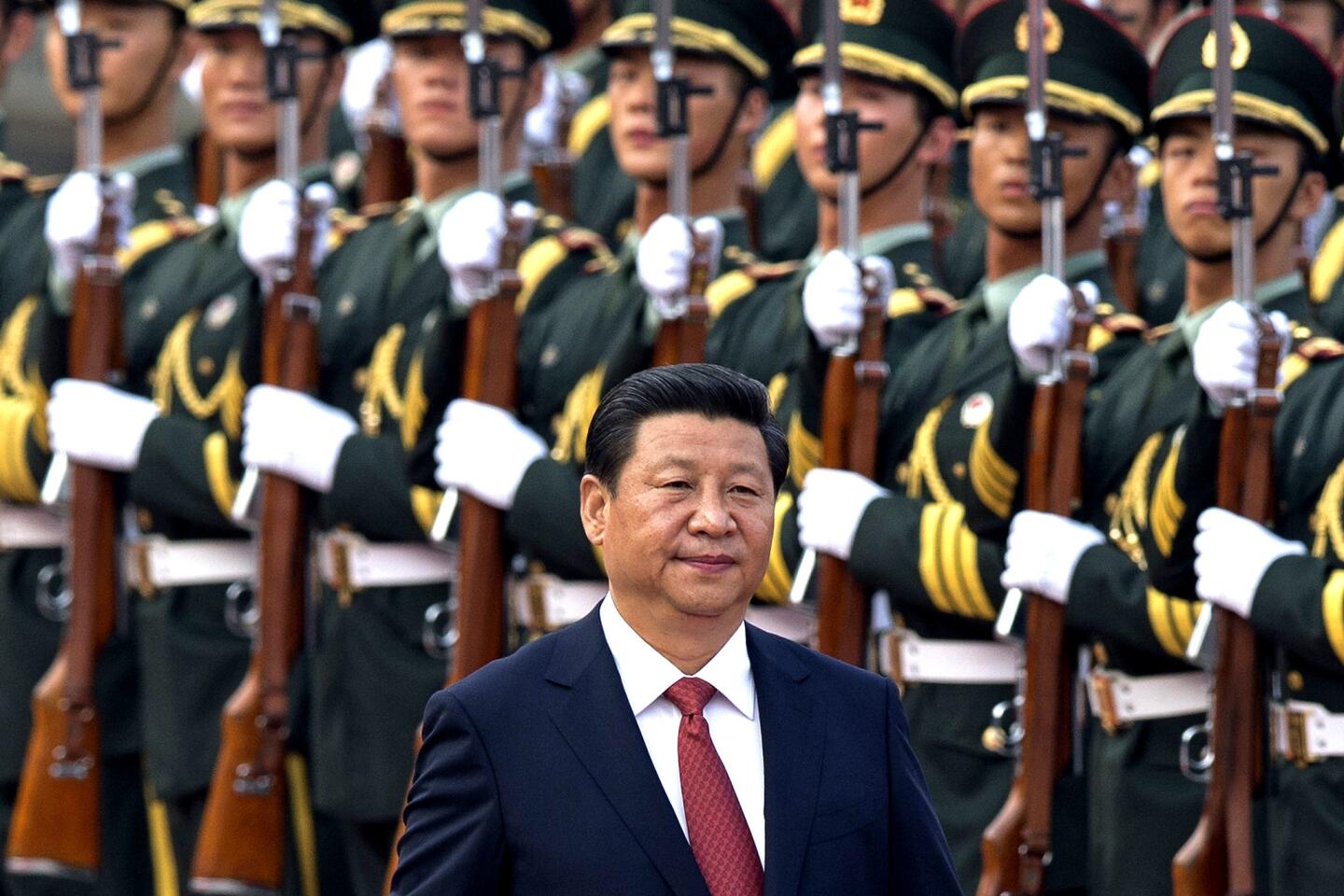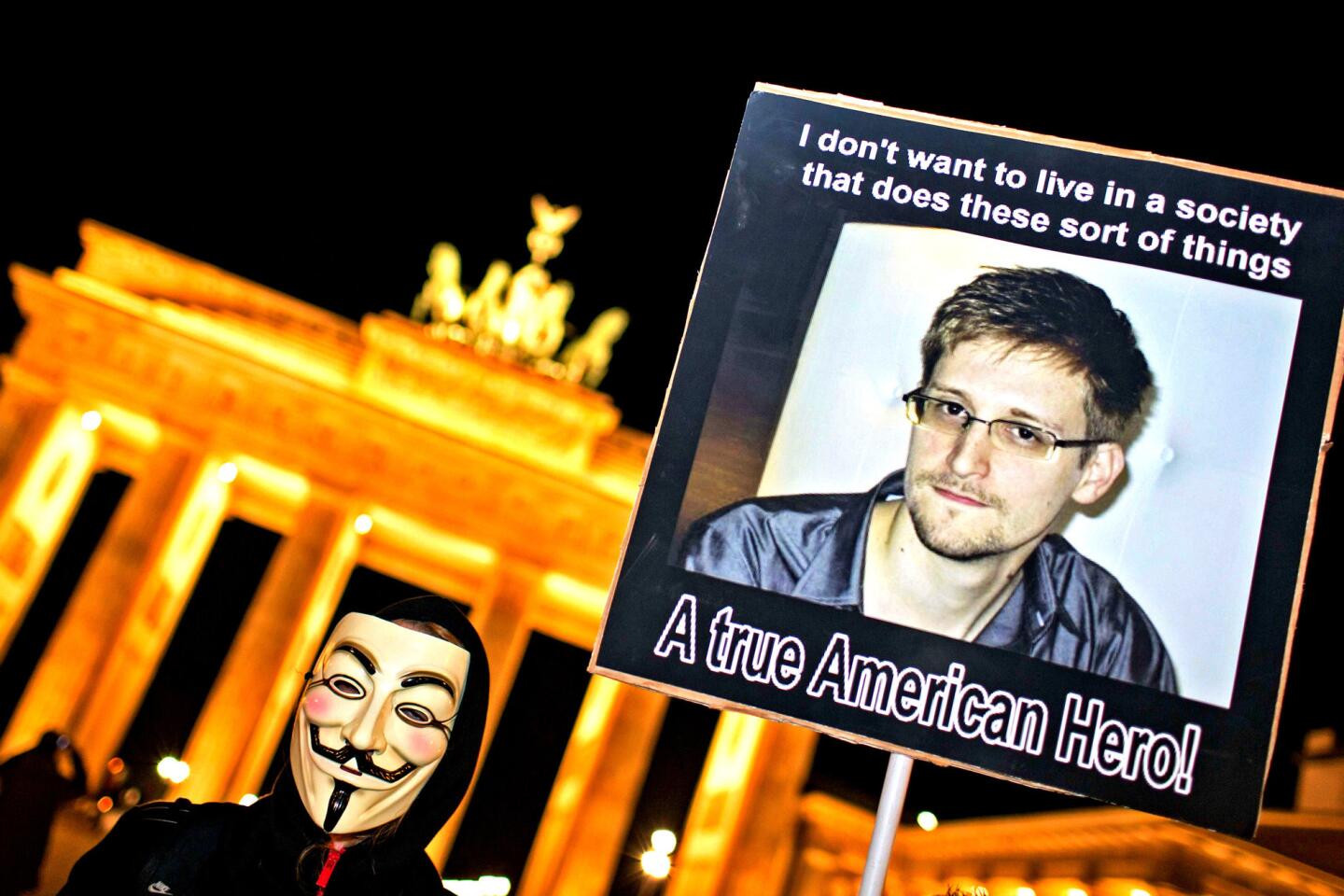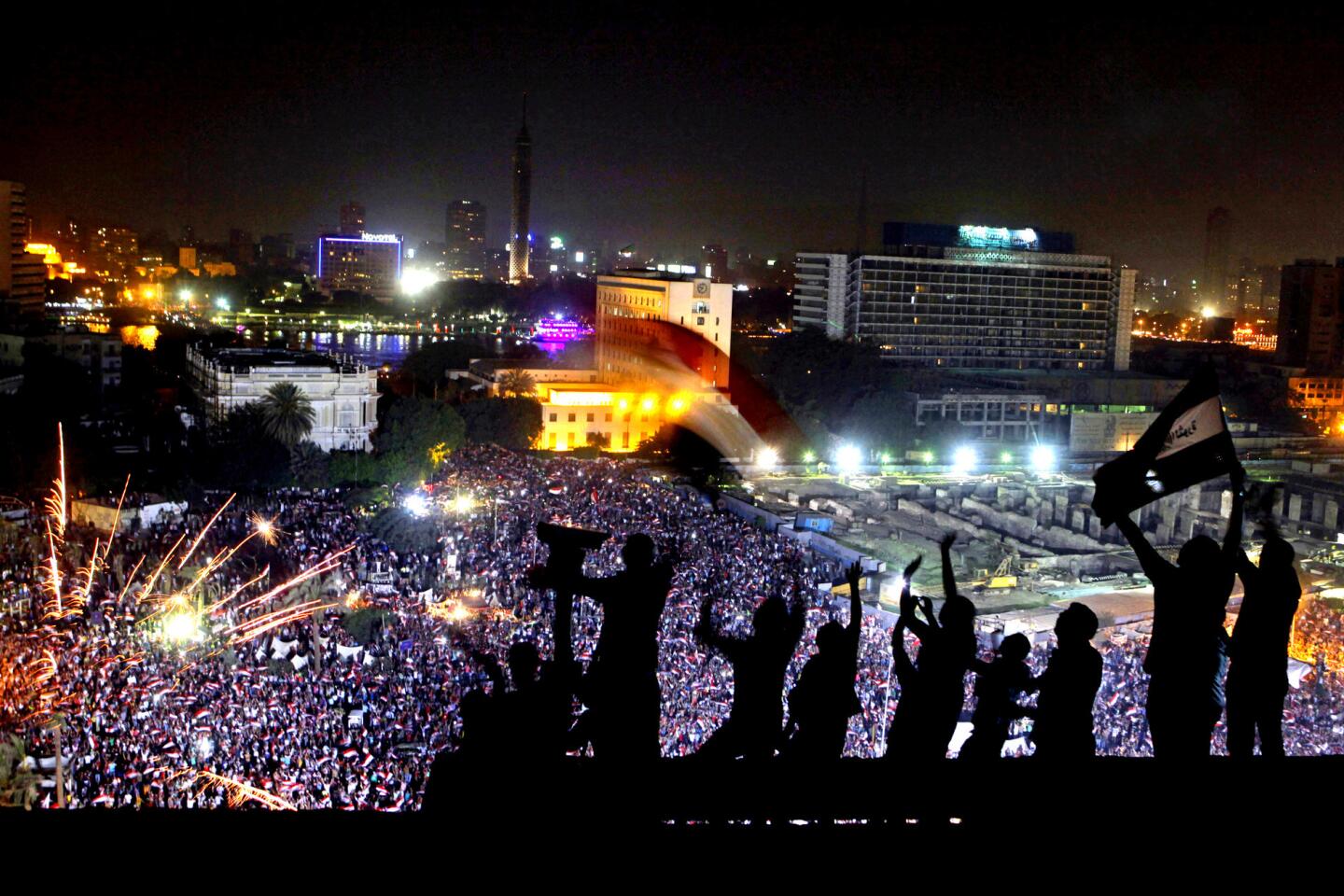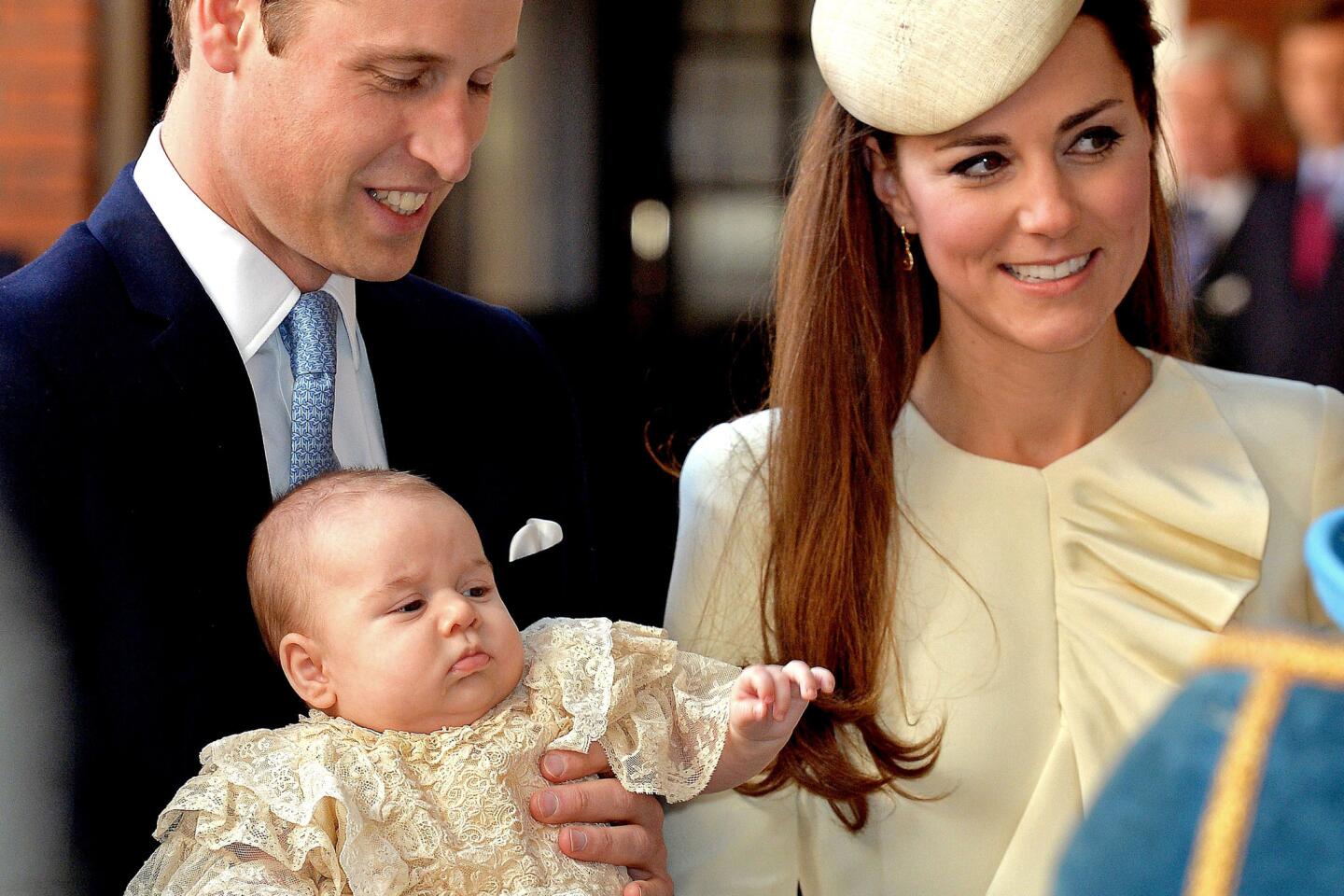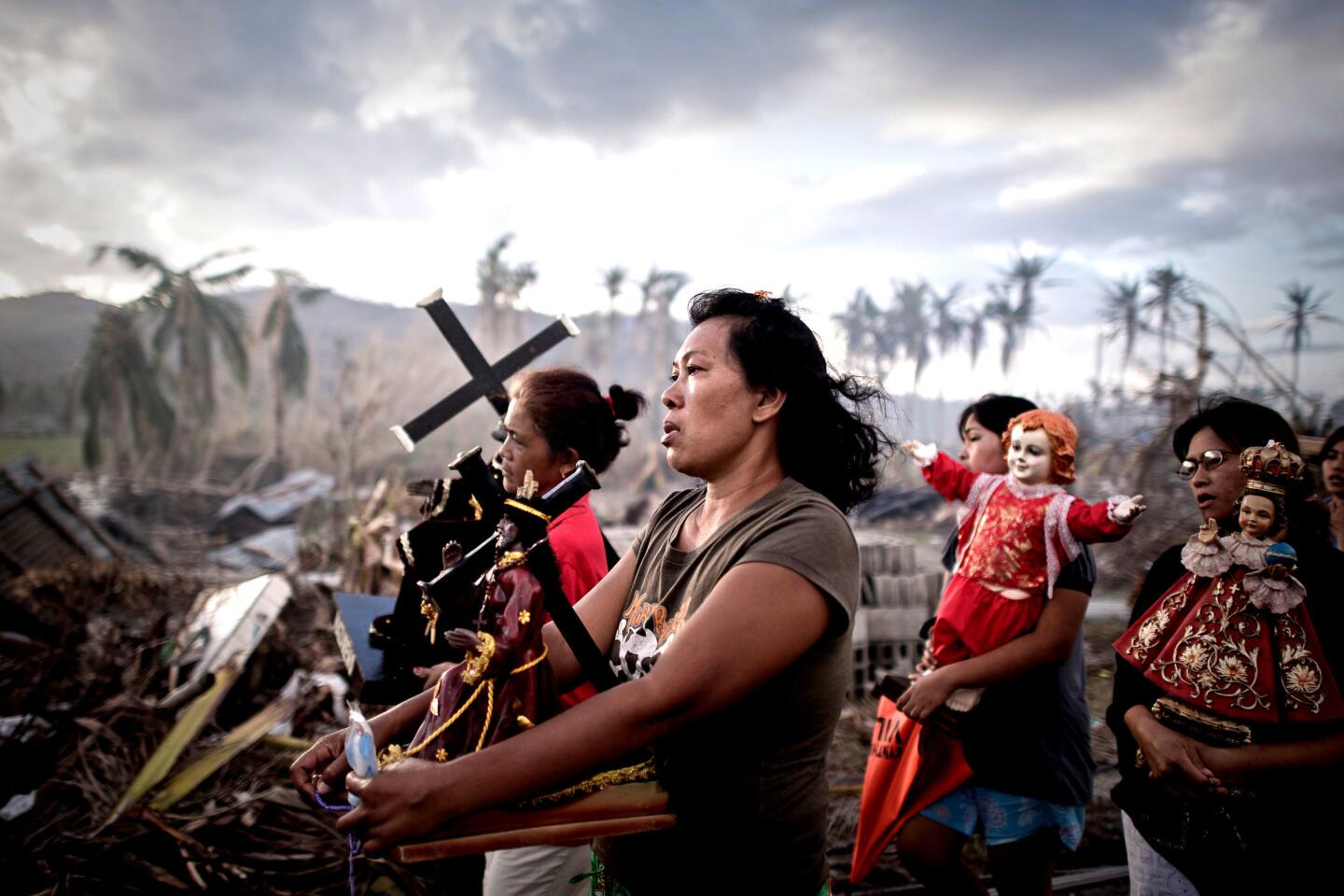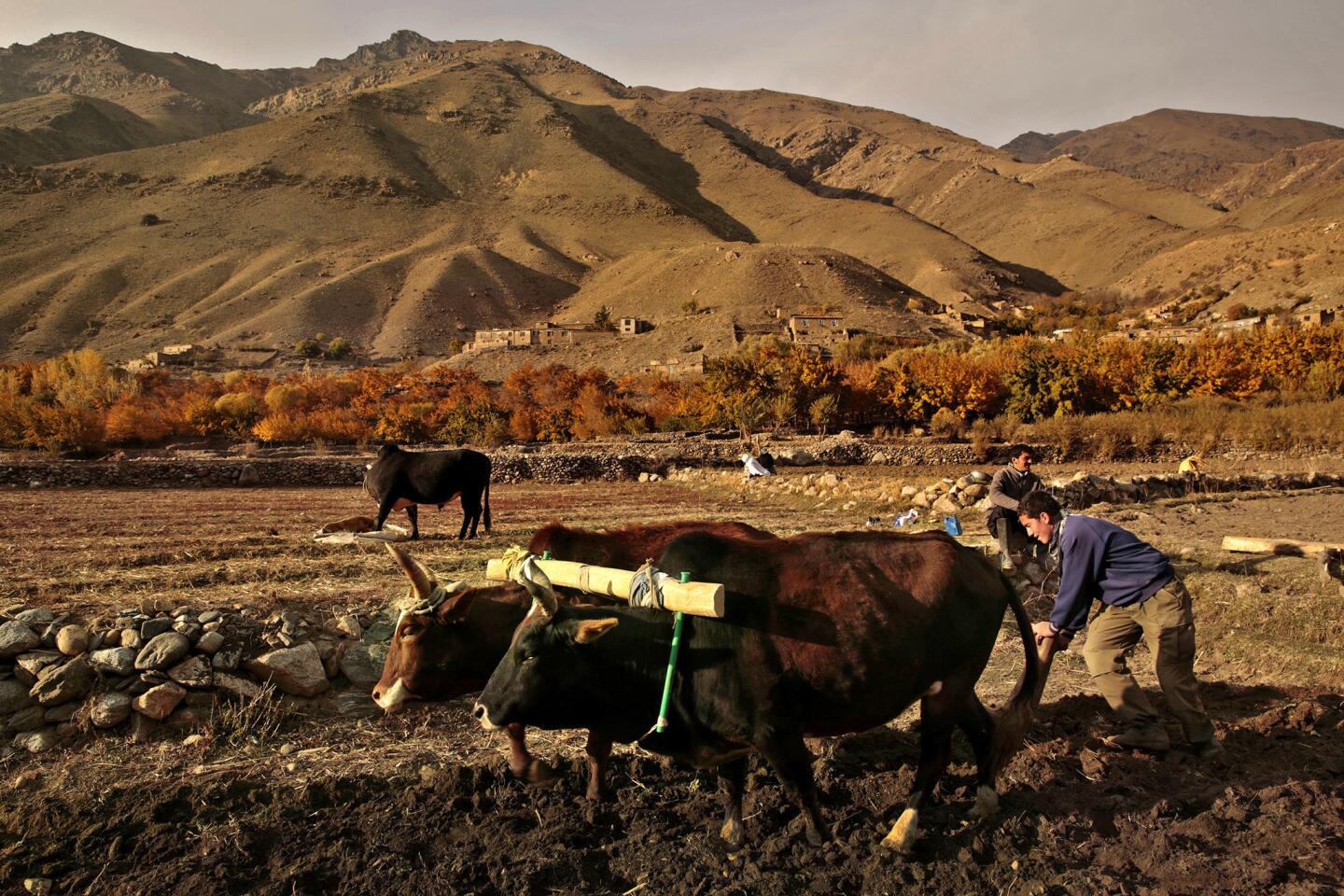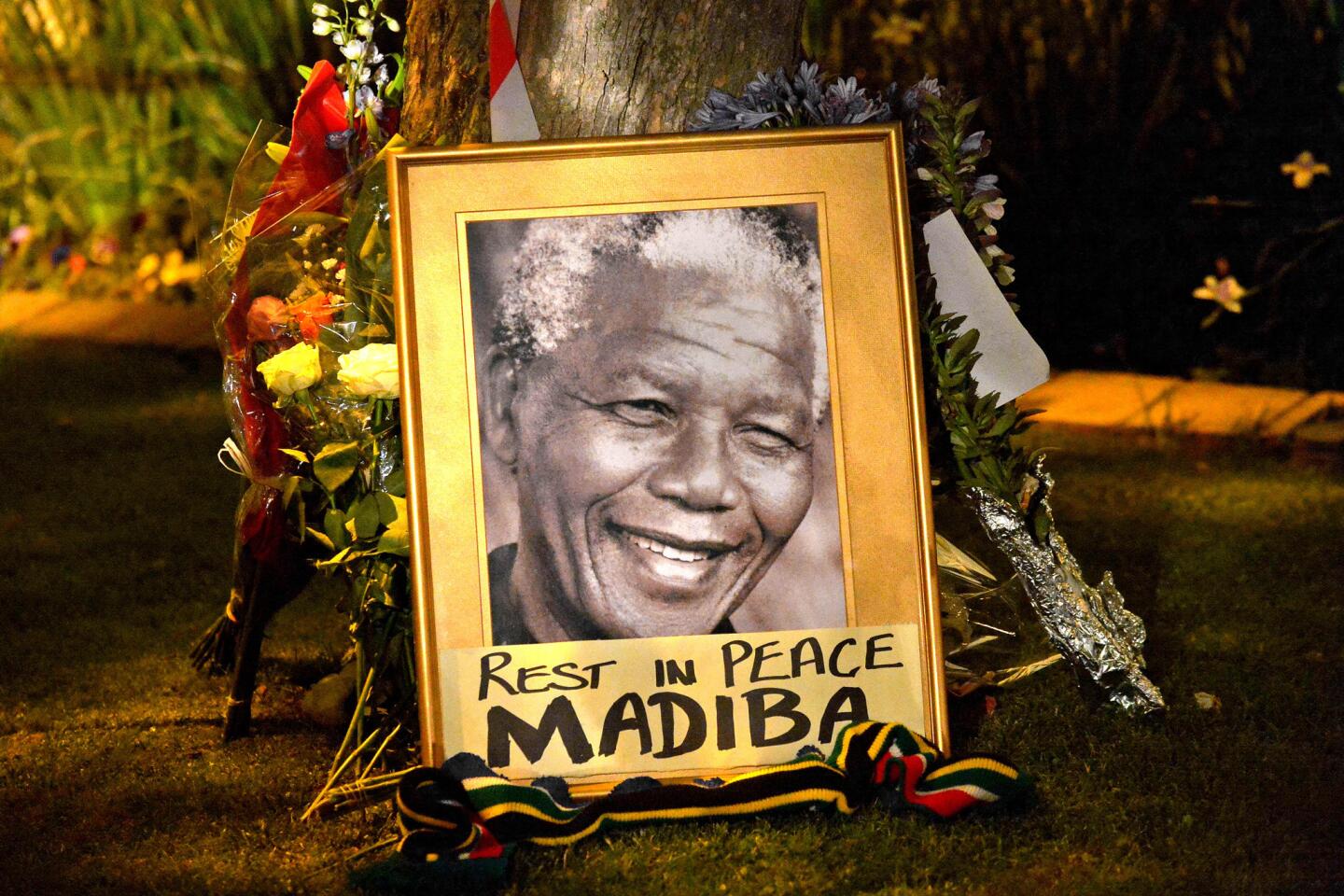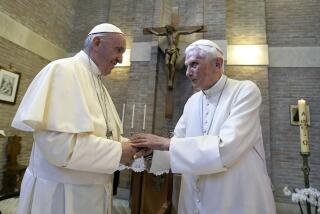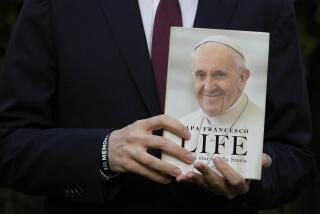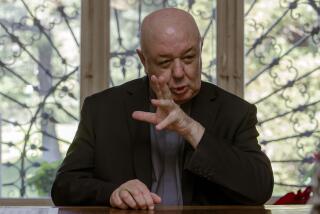Pope Francis, Snowden leaks among the top world stories of 2013
There are many ways to mark the passage of time.
Usher out the old year. Bring in the new. But the only thing that makes any year remarkable is what happened during its span. And events have their own timetable.
So does it make sense to think of the year just past as the end of a millennium in which the head of the Roman Catholic Church was a European? The 34 years since the leaders of Iran and the United States had spoken to each other? The end of Nelson Mandela’s long walk to freedom? Should it be thought of as the 12th year of the longest war in U.S. history?
It was a year in which the world was faced with Syria’s use of chemical weapons against its own people. The breadth of U.S. eavesdropping on communications around the globe. Egypt struggling with the legacy of the “Arab Spring.” China asserting itself in Asia. One of the strongest storms ever recorded.
In roughly chronological order, the foreign editors of the Los Angeles Times compiled our own list of the dozen biggest international stories of the year. Which do you think were most important? Will they still seem important 20 or 50 years from now? What are we missing?
Send your tweets to @latimesworld or tell us what do you think in the comments section below.
Change at the Vatican
“Dramatic change” is not a phrase usually associated with the Vatican, but in 2013 events caught up with the Catholic Church. Pope Benedict XVI provided the first shock on Feb. 11, announcing he would be the first pontiff in nearly 600 years to step down. Observers were equally flummoxed by the announcement on March 13 of his successor, Jorge Mario Bergoglio of Argentina, the first pope from the Americas and the first from outside Europe in more than a millennium. Taking the name Francis, the new pope earned praise for his simple lifestyle and his determination to put a personal stamp on the papacy – even as he stayed true to traditional church doctrines.
China’s new leader
He has gone after corruption and lavish spending. A rival was publicly humiliated and sentenced to life in prison. He is intent on establishing a place for China in world affairs commensurate with its global power. When Xi Jinping was elected president in March, culminating his rise to power, it was more than just a generational change. Analysts debated whether his campaign against corruption and ostentatious spending masked a more mundane effort to consolidate power. But while the U.S. was mired in domestic budget fights, Xi projected economic and political might, challenging America’s friends in Asia with a claim to transport lanes as well as distant islands – and the mineral wealth beneath them.
Securing power in North Korea
Kim Jong Un, the grandson of Communist North Korea’s founder, wasn’t yet 30 when he came to power in 2011 and embarked on a confrontational course that continued into 2013. In February, Pyongyang conducted a third nuclear test in violation of U.N. resolutions. Kim threatened the U.S. and South Korea with nuclear annihilation. Flexing his muscle with the military hierarchy, Kim ordered dozens of public executions to punish what he labeled corruption and dissent. Twelve performers, including an ex-girlfriend, were reportedly shot by firing squad in August. News reports surfaced in December that Kim had his uncle and reported No. 2 executed for allegedly plotting a coup.
A new approach for Iran
Hassan Rouhani, long a senior figure in Iran’s clerical hierarchy, rose like a phoenix during the country’s presidential campaign. The least bad option in the minds of many Iranians, he pledged to improve the economy and Iran’s standing in the world, code for backing off Tehran’s nuclear pursuits. After an impressive victory in the June election, Rouhani made good on his pledges, renouncing pursuit of nuclear weapons during his inaugural world address at the U.N. General Assembly in September, a visit that culminated in a telephone conversation with President Obama, the first such contact since the Islamic Revolution in 1979. In November, Iran and world powers signed an interim agreement to cease high-level uranium enrichment in exchange for some sanctions relief.
A debate over spying
Former National Security Agency contractor Edward Snowden ignited a worldwide debate about privacy in the Internet age when he absconded with computer files that showed the breadth of U.S. spying on Americans and foreigners in pursuit of terrorism leads. Russia allowed him to remain in a no man’s land at Moscow’s main international airport for more than a month before it granted him temporary asylum. His revelations shook up diplomatic relations with Germany, France, Mexico and Brazil – the latter so severely that President Dilma Rousseff canceled an official visit to the U.S. The debate rages on: Should Snowden be admired as a whistle-blower? Or condemned as a traitor?
Egypt in turmoil
Since street demonstrations brought down Hosni Mubarak in February 2011, Egypt had staggered – and sometimes backtracked – in trying to build a democracy. On July 3, after massive street protests, the military overthrew the country’s first democratically elected president, Mohamed Morsi. Morsi’s Muslim Brotherhood had sought to strengthen the role of Islam, and in the process alienated many Egyptians and sent the economy into a nose dive. The coup did little to calm the streets. Six weeks later, troops stormed and dismantled camps in Cairo erected by pro-Brotherhood protesters, killing hundreds of people and angering even some of the new government’s supporters. By year’s end, Egypt remained a country deeply fragmented and still waiting for the promised fruits of democracy.
A royal baby
Prince William and his wife, the former Catherine Middleton, welcomed their first child on July 22, setting off celebrations among the royal couple’s future subjects. In a sign of the new century that he was born into, the announcement of the birth of his Royal Highness Prince George Alexander Louis of Cambridge was made to the world first via email and social networks such as Twitter, ahead of the traditional method of posting the news on an easel mounted at Buckingham Palace. There are now three generations of direct heirs to the throne, a rare pileup in the annals of British royalty. The last time the country experienced such an heir supply was during Queen Victoria’s reign more than 100 years ago.
Syria and chemical weapons
The images were shocking. Rows of bodies, alleged victims of a chemical weapons attack by the Syrian government on Aug. 21. The threat of a retaliatory U.S. military strike was in the air, and with it direct American involvement in yet another conflict in the Muslim world. Then, suddenly, there was another startling twist. On Sept. 14, the U.S. and Russia negotiated an accord to strip Syria of its chemical weapons by the middle of 2014. The deal did nothing to end the civil war – the government gained ground through the year, foreign fighters flooded into the country and the death toll topped 100,000. But no country had ever agreed to give up its chemical stockpile so quickly, and never in the midst of a civil war.
Reform in Mexico
When he brought Mexico’s Institutional Revolutionary Party back to power, President Enrique Peña Nieto promised it would not be the same old PRI that had ruled for much of the 20th century. During his first year in office, Mexico in many ways was still a mess. It seemed no less violent -- ad hoc peasant militias in some areas were an illustration of the lack of security. But the new president pushed major banking, education, tax and communications legislation through congress. Near year’s end, he won his biggest victory – approval of sweeping changes that could allow foreign investment in Mexico’s petroleum industry, a crown jewel that many have regarded as a bulwark against foreign meddling.
Typhoon in the Philippines
The toll was staggering. Nearly 7,800 people dead or missing, a million homes damaged or destroyed, and 4 million people displaced. The Philippines has weathered its share of deadly storms, but nothing quite like Typhoon Haiyan, known locally as Yolanda. One of the most powerful typhoons ever to make landfall, it blasted through 44 central provinces on Nov. 8, packing winds and tsunami-like storm surges that devastated coastal communities. The scale of the destruction overwhelmed authorities, who struggled to get aid to the survivors in the days that followed. The international response was swift, and as 2013 drew to a close, there were tentative signs of recovery. But humanitarian agencies warn it will take hard-hit cities such as Tacloban years to rebuild.
War in Afghanistan
After more than a decade of American military involvement in Afghanistan, the effort to wind down a deeply unpopular war began in earnest in 2013. The U.S. and its allies are quickly drawing down their forces and handing over bases to Afghan security forces. With all foreign combat troops slated to be gone by the end of 2014, many Afghans are worried about their government’s ability to keep Taliban insurgents at bay and hold successful elections in April. Those fears were aggravated by President Hamid Karzai’s refusal to sign a security agreement with Washington that would leave a residual U.S. force in the country and continue billions of dollars in military and reconstruction aid. As 2013 drew to a close, some former mujahedin warlords who fought against the Taliban were threatening to revive their militias and there was anxious talk about the possibility of another civil war.
Nelson Mandela dies
Nelson Mandela, South Africa’s first black president and a revered symbol of racial reconciliation around the world, died Dec. 5 at 95. As a young man, Mandela embraced violence to counter the brutality of apartheid and was jailed as a terrorist by a white-minority government. But when he emerged in 1990 from more than a quarter century in prison, he reached out to fearful whites and steered the country to its first nonracial democratic election. Although South Africa still wrestles with many of the disparities that plagued it under apartheid, Mandela’s vision of tolerance continues to inspire. Even in death, he brought together unlikely bedfellows. More than 90 world leaders attended a memorial service that featured a seemingly amiable handshake between President Obama and his Cuban counterpart, Raul Castro.
Twitter: @MarkPorubcansky
Porubcansky is The Times’ foreign editor. Staff writers Alexandra Zavis, Carol J. Williams and Roger Ainsley contributed to this report.
More to Read
Start your day right
Sign up for Essential California for news, features and recommendations from the L.A. Times and beyond in your inbox six days a week.
You may occasionally receive promotional content from the Los Angeles Times.
